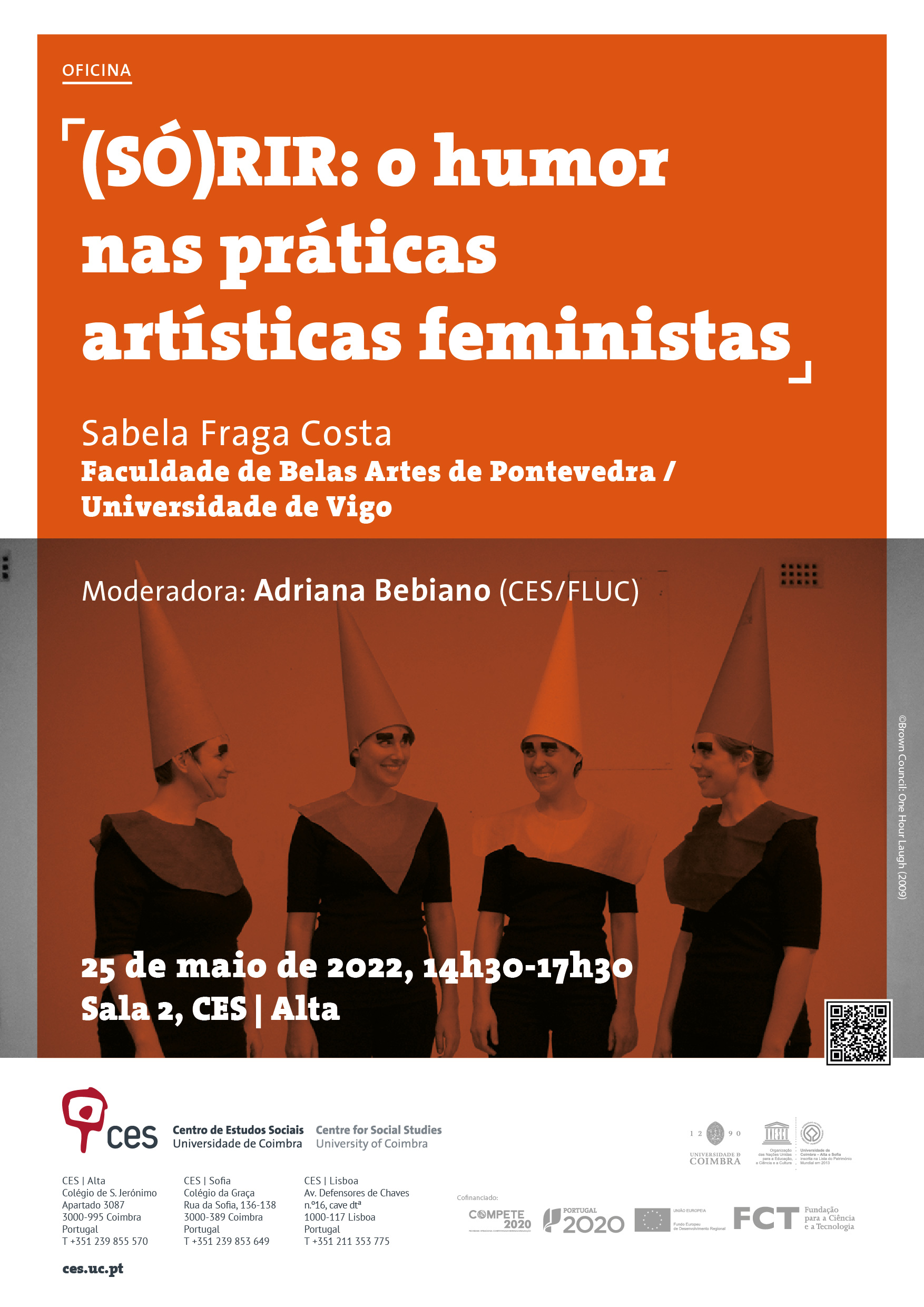Workshop
(Just) For Laughs: humour in feminist artistic practises
Sabela Fraga Costa (Faculdade de Belas Artes de Pontevedra / Universidade de Vigo)
May 25, 2022, 14h30-17h30
Room 2, CES | Alta
Moderator: Adriana Bebiano (CES/FLUC)
About
What role does humour play in political processes? Do feminists need "seriousness" to gain legitimacy? The relationship between humour, women and feminisms is a complex one. Since the first wave of feminisms, humour has been used as a weapon to perpetuate relations of domination and maintain situations of inequality. However, in recent years, both in the field of research and in the field of creation, artistic proposals have emerged that have been inverting the object-subject relationship of humour and using this critical tool in the struggle for political agency.
This workshop aims to share with the audience the main contributions and tensions found in the doctoral research “Ficções apropriadas: humor e feminismos nas artes visuais nas últimas décadas (1980-2020)” [Appropriate fictions: humour and feminisms in the visual arts in recent decades (1980-2020)]. The theories that defend humour as a subversive tool, previous research that has studied its political potential in contemporary feminisms, and the work carried out during the research will be used as a starting point for the discussion. Through the analysis of various artistic works, we will present, on the one hand, how this connection between feminisms and humour manifests and operates in the arts, and, on the other hand, what role key concepts such as "place of speech" and "vulnerability" play in this process of creation.
Bio note
Sabela Fraga Costa is an art historian and a PhD candidate at the Faculty of Fine Arts of Pontevedra (University of Vigo). Her latest work as an historian focused on the connection of cultural associativism in the 1970s in Galicia with the Galician artistic avant-garde, resulting in the exhibition and catalogue Colección Abrente: arte galega no desafio cultural dos 70, published by the Xunta de Galicia. Her areas of research are visual studies and feminist theories, with a focus on artistic proposals that seek to denaturalise official narrativity from the very field of the image. She is currently doing an international PhD internship at CES.


